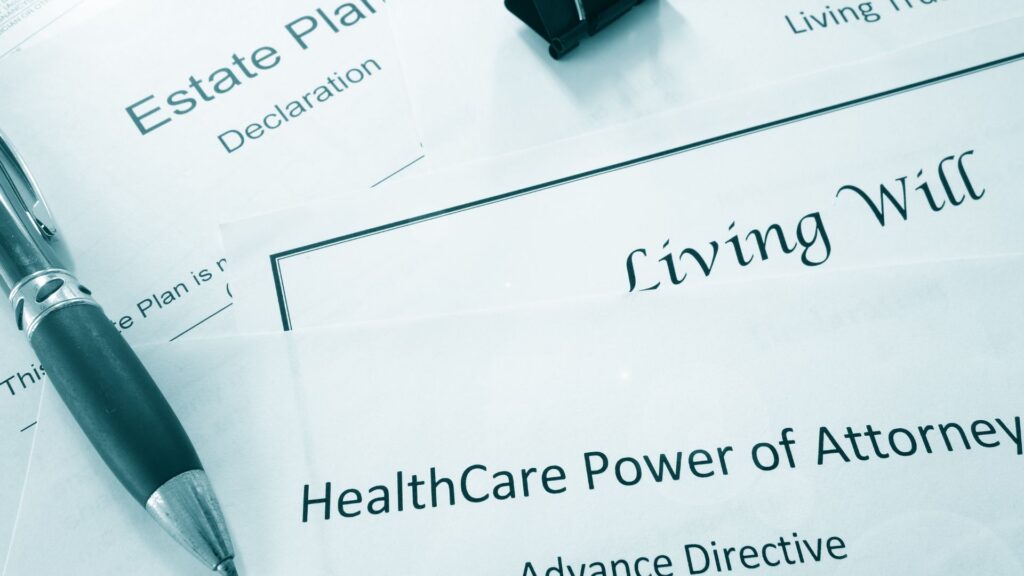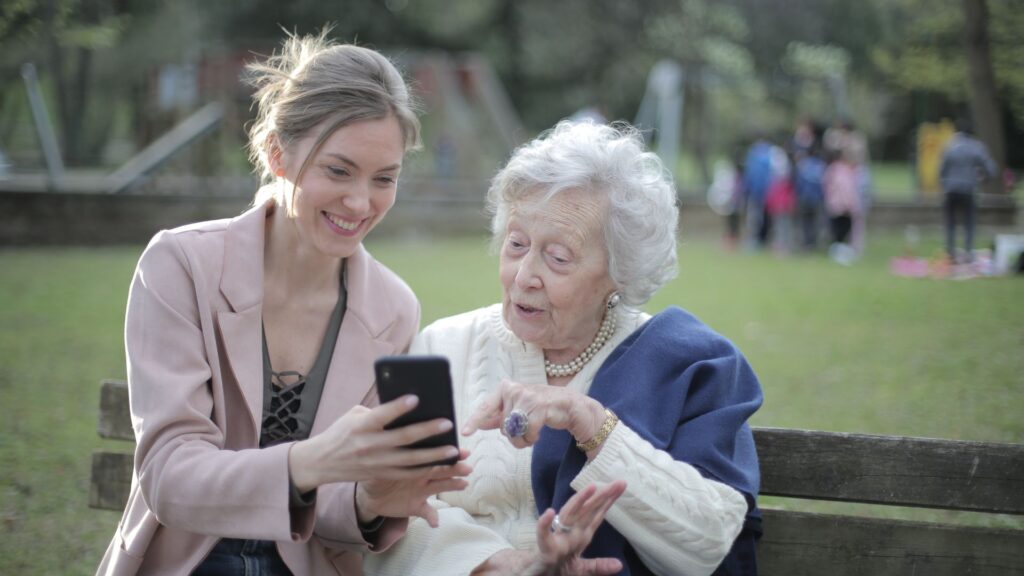
What Should Be in Your End-of-Life Plan—Even If You’re Not Terminally Ill
It starts with a moment. A friend’s sudden diagnosis. The unexpected passing of a relative or loved one. Or even a quiet Sunday scroll through the news and something makes you pause. Suddenly, the idea of “someday” feels a little closer.
If you’ve recently found yourself wondering what would happen if you couldn’t speak for yourself, or who would know your wishes in a medical emergency, you’re not alone. These questions are a sign of awareness, not anxiety. They mark the beginning of what we call upstream end-of-life planning: proactive choices made from a place of love and clarity, not crisis.
At Empowered Endings Foundation, we believe these conversations are one of the greatest acts of care we can offer the people we love—and ourselves. They are a way to bring presence and peace to the uncertainty we all face.
What Is an End-of-Life Plan and Why Do You Need One?
An end-of-life plan is a comprehensive roadmap that outlines your healthcare preferences, legal wishes, and emotional priorities in case you become unable to advocate for yourself. It supports your ability to live on your terms and offers your loved ones clarity during difficult times.
An effective and comprehensive plan, what we call an Advance Health Care Directive often includes:
- A Healthcare Power of Attorney (POA)/ Health Care Agent
- A living will or end-of-life care preferences
- Comfort, spiritual, and cultural preferences
- After-death care preferences
- Emergency contact details
Even if you’re healthy today, having these in place ensures your voice is heard and your values are respected tomorrow. It’s a way to take agency and ensure that the care you receive reflects who you are.

Living Will vs Advance Directive: What’s the Difference?
These two terms are often used interchangeably, but each serves a specific purpose :
- A Living Will is a legal document that outlines your preferences for specific life-sustaining treatments such as resuscitation, intubation, or tube feeding if you’re in a terminal or unconscious state.
- An Advance Directive is a broader document that can include your living will or end-of-life care choices as well as preferences for palliative care, dementia, spiritual considerations, and designation of decision-makers/health care agents.
You may also wish to have a DNR (Do Not Resuscitate) order or POLST (Physician Orders for Life-Sustaining Treatment) depending on your personal needs and local requirements. These can help ensure your wishes are honored in emergency situations even when you cannot voice them.
Why Everyone Over 18 Needs an End-of-Life Plan
Everyone deserves to have their voice heard—regardless of age.
While older adults and those with chronic conditions are statistically more likely to have a plan, the truth is that emergencies don’t discriminate. Car accidents, unexpected illnesses, or sudden complications can happen at any age. That’s why:
- If you’re over 18
- If you’re traveling soon
- If you’ve ever been hospitalized
- If you’re starting a new job or school
- If someone close to you has passed and it made you reflect…
…this conversation is for you.
In addition, data from the NCQA report dated August 2025 indicates that only about 50% of older adults have engaged in some form of advance care planning, reflecting somewhat higher engagement but still showing ACP is far from universal. Early planning isn’t just smart—it’s a kindness.
5 Simple Steps to Create Your End-of-Life Plan
So where do you begin? This can feel overwhelming—but it doesn’t have to be. Start small, and build from your values.
Step 1: Reflect on Your Values
Ask yourself:
- What does quality of life mean to me?
- What fears or concerns do I have about end-of-life care?
- Are there specific religious or cultural practices I want honored?
Step 2: Choose a Healthcare Power of Attorney
Select someone you trust. This individual will be your voice when you can’t speak for yourself. Make sure they:
- Are open and willing to serve in this role
- Understand your values deeply
- Can remain calm and decisive in stressful moments
Step 3: Complete Your Advance Directive
Use trusted sites like Thanacare Platform for finding a professional or Five Wishes if you’d like to start the process independently. Alternatively, you can join the Empowered Endings End of Life Planning Certification and complete your plan using our platform hosted by Thanacare.
Step 4: Store and Share Your Documents
Review the documents with your doctor, care team, and loved ones to ensure they reflect your medical reality and preferences.
- Print copies for easy access
- Upload digital versions to your patient portal or cloud storage
- Share with your POA, physician, and immediate family
Step 5: Revisit Regularly As life evolves, so should your plan. Set a reminder to update it every year or after major changes like a move, diagnosis, or divorce.

Why a Healthcare Power of Attorney Is Essential
A Healthcare Power of Attorney gives your chosen advocate legal authority to make decisions on your behalf. It allows you to appoint someone who understands what matters most to you, not someone chosen by the system.
Doctors rely on healthcare POAs to make ethically sound, legally compliant decisions when patients can’t consent. When this document is clearly in place, physicians can move forward confidently, avoiding unnecessary delays in care and helping everyone stay focused on what truly matters: you.
In difficult moments, your healthcare POA becomes your voice and your anchor. They carry your wishes forward with compassion and courage.
Free End-of-Life Planning Resources You Can Trust
You don’t have to figure this out alone. At Empowered Endings Foundation, we provide a free EOL Planning Certificiation.
Through this program, you’ll gain a clear understanding of:
- What end of life planning includes and why it is so critically important for every adult to have one in place;
- What role you play in guiding and supporting clients in end of life planning, and why it’s helpful;
- The importance of defining quality of life and how to support clients in determining what theirs looks like;
- What considerations need to be discussed and decided on throughout the planning process;
- A basic understanding of end of life options and other key medical decisions;
- How to Guide your clients and support them in making decisions about their care;
- How to use the Empowered Endings™ Planning Platform, powered by Thanacare;
- How you can support and facilitate discussion around decisions;
- How to empower individuals in communicating plans with their loved ones.
Planning Ahead Is a Gift to Your Loved Ones
When people die without clear plans, families are left with hard choices, lingering guilt, and sometimes even conflict. When you plan ahead, you’re offering your loved ones peace. You’re lifting a burden they may never express but will always carry.
As one of our community members shared: “After a loved one passed unexpectedly, I made my own plan the next week. I didn’t want my kids wondering what I would’ve wanted. I wanted them to know.”
Busting Common Myths About End-of-Life Planning
Let’s clear the air:
- “I’m too young.” If you’re over 18, it’s time.
- “It’s too complicated.” You don’t need a lawyer or a six-figure estate. You just need the right tools.
- “My family already knows what I want.” Unless it’s written and witnessed, your preferences might not hold up or be remembered.
This process exists to give you peace of mind. It offers presence, clarity, and protection—not fear.
What Happens If You Don’t Have an End-of-Life Plan?
The importance of preparation becomes especially clear when we consider what happens without a plan. In the absence of documented wishes, default laws kick in. And those defaults may not reflect your values, preferences, or include the people you trust most.
You could be kept on machines you wouldn’t have chosen—or denied treatments you would have wanted. The lack of guidance leaves your loved ones with emotional weight and decision fatigue in already difficult moments.
Taking the time to plan ahead empowers you to guide your care even when you can’t speak for yourself. It preserves your autonomy, reduces confusion, and safeguards the relationships that matter most.

How to Help Someone Else Create Their Plan With Confidence
In many cases, your role might not be to make your own plan—but to support someone else in taking that step. Whether it’s a parent, partner, or close friend, gentle encouragement can make a lasting difference.
You might:
- Offer resources, not pressure
- Ask if they’d like help organizing their documents
- Suggest filling out your plans together
- Remind them that this is a gift to the people who love them
Approaching this as a shared act of care can reduce fear and strengthen connection. And when you walk the path with someone else, it reinforces your own values, too.
Making End-of-Life Planning Part of Workplace and Campus Wellness
Expanding the conversation further, we must consider how our communities can take part. End-of-life education doesn’t have to begin in crisis—it can be a natural part of wellness, leadership, and life-skills programming.
Employers, universities, and community organizations can help by:
- Providing access to planning kits
- Hosting informational workshops
- Including end-of-life planning in wellness initiatives
- Encouraging young adults to appoint a healthcare proxy when turning 18
Empowered Endings Foundation offers speaker sessions and downloadable resources for institutions seeking to integrate this vital education into their culture. By empowering future generations early, we create a culture that values dignity at every stage of life.
Why It’s Never Too Early to Start Your End-of-Life Plan
Creating an end-of-life plan reflects mindfulness, not morbidity. It’s an intentional act of care, clarity, and empowerment.
Whether you’re 28 or 88, single or partnered, healthy or navigating chronic illness—this plan is for you.
Let your values speak—now, and always. You don’t have to do this alone.
Join the Empowered Endings™ End of Life Planning Certification or reach out to us at Foundation@EmpoweredEndings.org for gentle guidance and compassionate support.
Because planning for the end starts with living on purpose.



